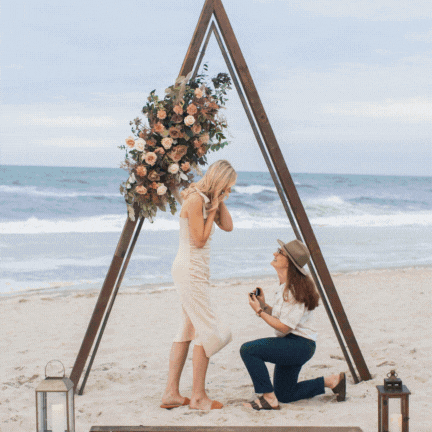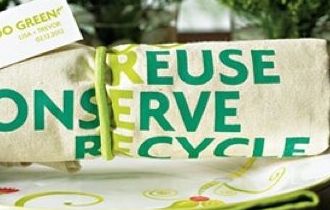 Something old, something new, something borrowed, all things … GREEN. Yes, you can have the elegant wedding of your dreams and still be socially and environmentally responsible. We show you how.
Something old, something new, something borrowed, all things … GREEN. Yes, you can have the elegant wedding of your dreams and still be socially and environmentally responsible. We show you how.

Sure, planning a wedding that is environmentally friendly and socially conscious gives you that great feeling of knowing you’re doing what you can to make the world better place, but you don’t have to sacrifice style to go green. In fact, there’s a hidden bonus, says Kate Harrison, founder of the Green Bride Guide, an online resource for eco-minded couples: “Going local, going seasonal, going green all make your wedding inherently more interesting and beautiful.”
With demand up for eco-friendly products and services, “green” companies are increasingly easy to find. But, Harrison says, beware of “green washing”—the practice of selling something as environmentally friendly when it’s not. Do your research before you pay.
Here are Harrison’s suggestions on ways to create a truly eco-chic wedding:
Wedding Websites that give information like directions, menu selections and registry items are an easy way to cut down on paper and help your guests get organized. Harrison recommends the free site mywedding.com and notes that you can buy matching eco-friendly invitations for a unified look.
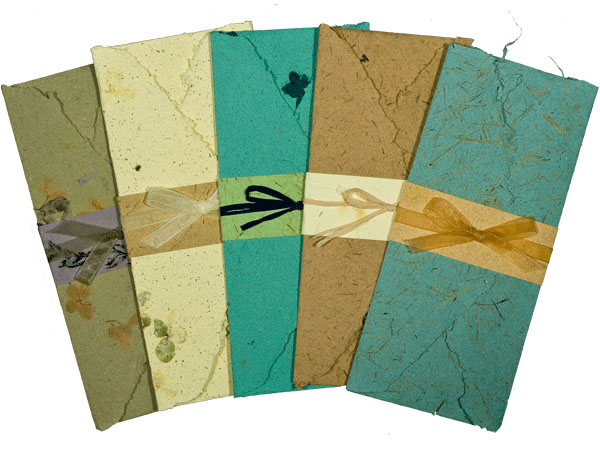 |
|
Wrapped invitations made from recycled paper, available at twistedlimb.com. Photo courtesy of twistedlimb.com. |
Invitation choices vary wildly. “We are seeing more digital invitations,” Harrison says, “but for a really elegant event, people still want to use paper invitations.” Delphine offers letterpress invitations on recycled cotton—“great for an eco-luxury look,” Harrison says. Seed-infused paper invitations are another innovative idea. Printed on recycled paper, they can be planted after your guests have marked their calendar. A bonus: As the flowers grow, your friends and family will be reminded of your love for them. Check out Twisted Limb Paperworks and Botanical PaperWorks.
Gowns are riding the eco-couture wave as luxury designers are turning to sustainable materials such as pea silk, hemp silk and organic cotton. Conscious Clothing is known for its hemp silk gowns, while Elizabeth St. John Couture also offers bridesmaids and children’s lines. And elegance comes naturally with designs by Adele Wechsler and Chrissy Wai-Ching. Little Borrowed Dress rents bridesmaids gowns. If you want to be more eco-friendly, buy a once-worn designer gown at places like SmartBride Boutique; after the wedding, sell your gown or donate it to an organization like Brides Against Breast Cancer.
 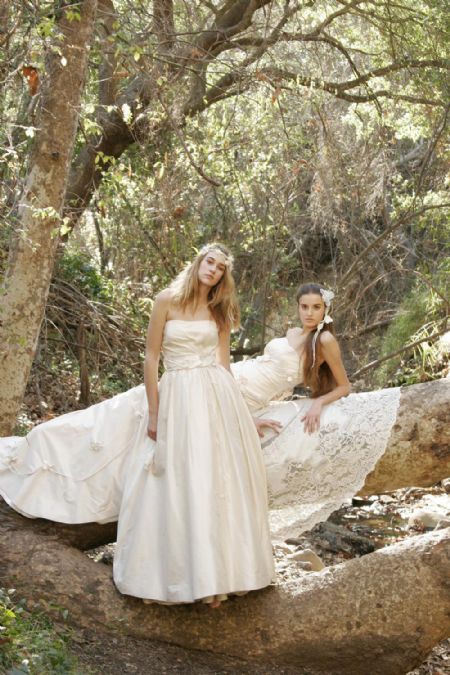 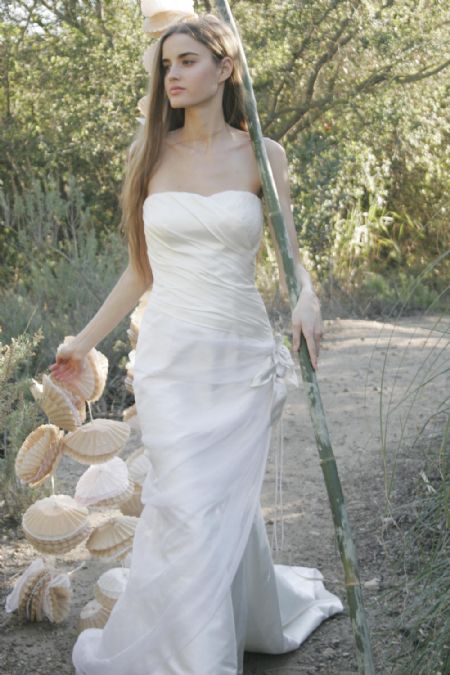 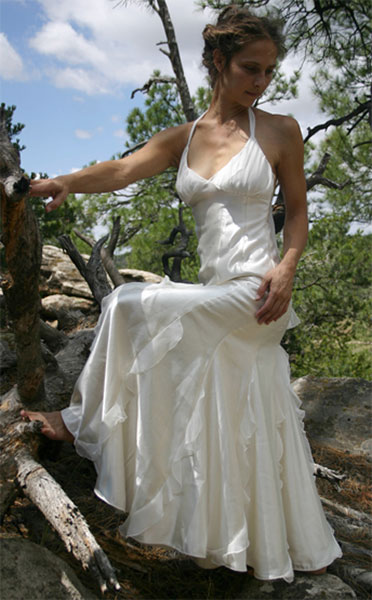 From left to right: Cassia Eco Couture wedding gown by Adele Wechsler, photo courtesy of Adele Wechsler; Fern with Blossom gown by Adele Wechsler, photo courtesy of Adele Wechsler; Misty Eco Couture wedding gown by Adele Wechsler, photo courtesy of Adele Wechsler; Firenze gown made from hemp silk, available at getconscious.com, photo courtesy of getconscious.com |
Suits go high-end with hemp, twill, or sustainable wool. “Of course, men [and butch women] have it easy because they can rent a tuxedo,” Harrison says. “Just make sure you use a green dry cleaner.” Other options for grooms and male attendants: Buy a suit that can be worn again or wear something you already own.
Rings provide great opportunities to recycle. Buy vintage or create a new ring out of old gold with companies such as greenKarat. Otherwise, seek out jewelers who use recycled metals and diamonds from Fair Trade, conflict-free mines.
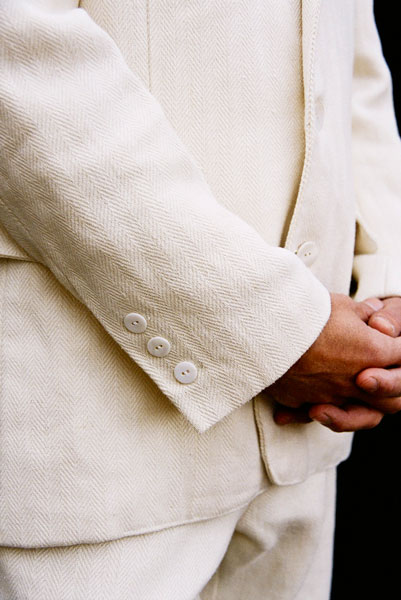 |
| Get Conscious men’s hemp suit Photo courtesy of getconscious.com |
Venue selection can have a serious impact on the environment: “Plan your wedding and reception at the same facility to reduce your carbon footprint,” Harrison says. “Find one that is connected to a nonprofit, like a museum or botanical garden, so your money is going to support something you believe in. Visit the “Green” Hotels Association to find a venue with sustainable practices.
Caterers should use local, organic produce. “Ask about recycling, composting and use of non-disposable utensils, cups, and napkins,” Harrison says, “as well as if they donate surplus food.” Connect with farms to find out what is in season and build your menu around those items. “Less is more,” Harrison says. “It’s better to have two or three really delicious, locally sourced appetizers that will blow everyone away than 10 appetizers that have been flown in and are off-season.” Also, with organic ingredients ubiquitous, “any baker worth her salt should be able to make an organic cake,” she notes.
Flowers ideally should be from your area. Visit localharvest.com to connect with farmers and growers. For centerpieces, use potted plants or succulents, or go a themed route, like beachscape centerpieces for summer. “You can use sand dollars, seashells and sand, and then return them to the beach afterward,” Harrison says.
To see a luxurious green Real Wedding, read about Atlantans Marni and Casey here.




